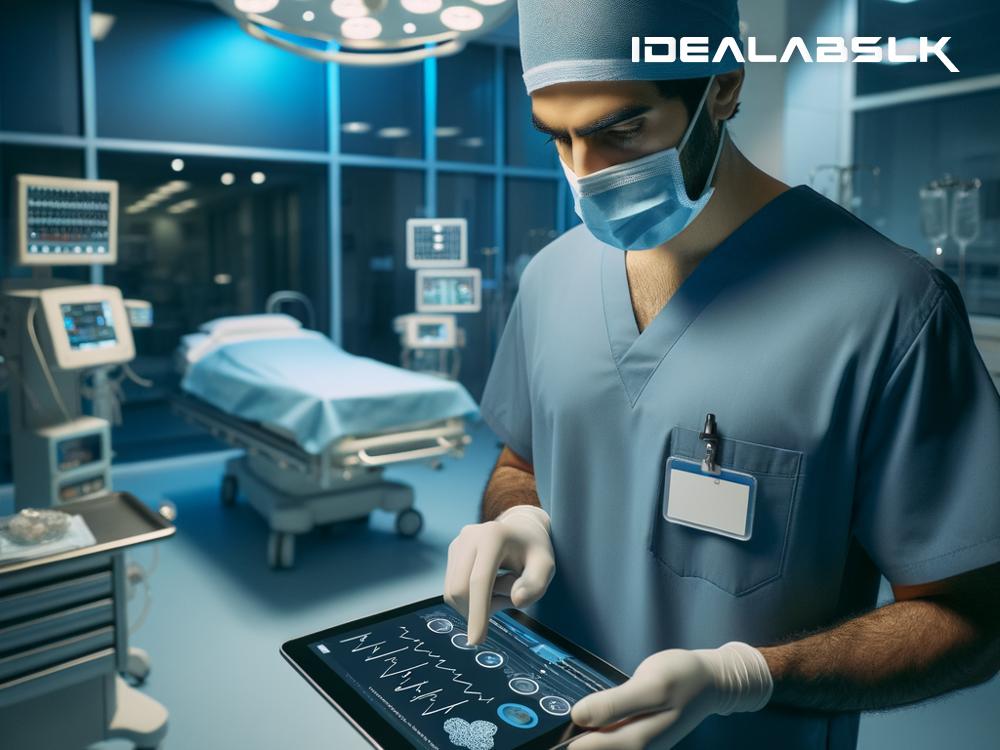How Technology is Improving Post-Operative Care: From Remote Monitoring to AI-Assisted Healing
After undergoing surgery, the journey toward complete recovery is crucial. It's a time that requires careful observation and proper care to ensure the best outcomes. Fortunately, technology is revolutionizing the way post-operative care is delivered, making the recuperation process smoother, quicker, and more efficient for patients everywhere.
Remote Monitoring: Keeping a Close Eye from Afar
Gone are the days when staying in the hospital for a long time after surgery was the only option. Thanks to remote monitoring technologies, doctors can now keep an eye on their patients without them having to stay in the hospital. How does it work? Well, it’s simpler than you might think.
Patients are sent home with wearable devices that can track vital signs like heart rate, blood pressure, and oxygen levels. These gadgets wirelessly send data back to healthcare professionals in real-time. This way, if anything goes awry, the medical team can quickly step in, even if they're miles away. It's like having a doctor by your side, ensuring you're on the right path to recovery, without the need for constant hospital visits.
AI-Assisted Healing: The Smart Way to Recover
Artificial Intelligence (AI) is another game-changer in post-operative care. It might sound like something out of a science fiction movie, but AI is increasingly becoming a part of our daily healthcare system. In post-operative care, AI is being used in several fascinating ways.
One of the most significant contributions of AI is in pain management. Instead of a one-size-fits-all approach, AI algorithms can analyze data from numerous sources, including a patient's medical history and real-time health data, to personalize medication plans. This means the dosage and type of medication can be tailored precisely to each individual's needs, reducing the risk of side effects and promoting faster healing.
AI doesn't stop there. It's also being used to predict potential complications before they happen. By analyzing patterns from vast amounts of post-operative recovery data, AI can alert healthcare providers about risks, such as infections or slower-than-expected healing, allowing for preventative measures to be taken early on.
Virtual Reality: A Distraction from Pain
Virtual Reality (VR) technology, often associated with video games and entertainment, is making waves in the medical field as well. For post-operative patients, VR offers an innovative way to manage pain and anxiety. Through VR headsets, patients can be transported to calming environments, engage in guided meditation, or even play games designed to distract from pain. It's a form of digital therapy that can reduce dependency on pain medication and make the recovery period more bearable and less stressful.
Telehealth: Consultations at Your Convenience
Telehealth has seen a surge in popularity, especially in the wake of the global pandemic. It allows patients to have consultations with their doctors via video call, saving them the trouble of traveling to the hospital or clinic for follow-ups that don't require physical exams. This is particularly advantageous for post-operative patients, who may have mobility issues or be at a higher risk of catching infections in hospital settings.
The convenience of telehealth encourages more consistent and open communication between patients and healthcare providers. Patients can easily report concerns, ask questions, and receive advice – all from the comfort of their own homes.
The Road Ahead
The integration of technology into post-operative care is transforming the way we think about recovery. With innovations like remote monitoring, AI-assisted healing, VR therapy, and telehealth, patients are receiving more personalized, efficient, and convenient care than ever before.
This technological revolution is not only making the post-operative phase safer and more comfortable for patients but also improving outcomes and reducing healthcare costs. As technology continues to evolve, we can expect even more groundbreaking tools and methods to emerge, further enhancing our ability to heal and recover.
The advancements in technology bring a promise of a brighter, healthier future for all. Whether it's through a wearable device, a virtual reality headset, or an AI-powered health platform, technology is paving the way for smarter, more compassionate, and patient-centered post-operative care.

